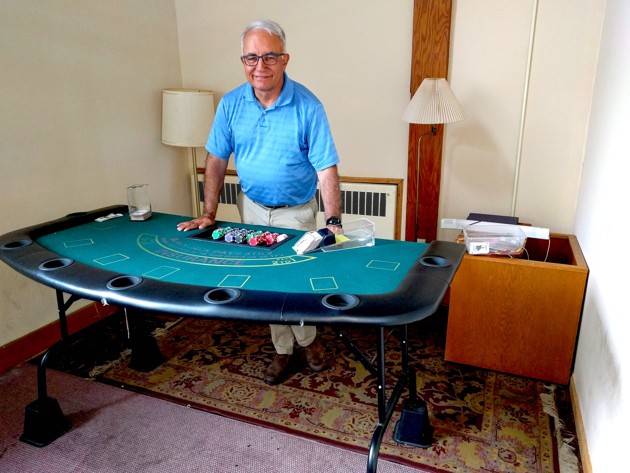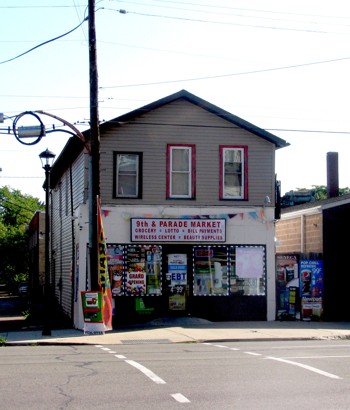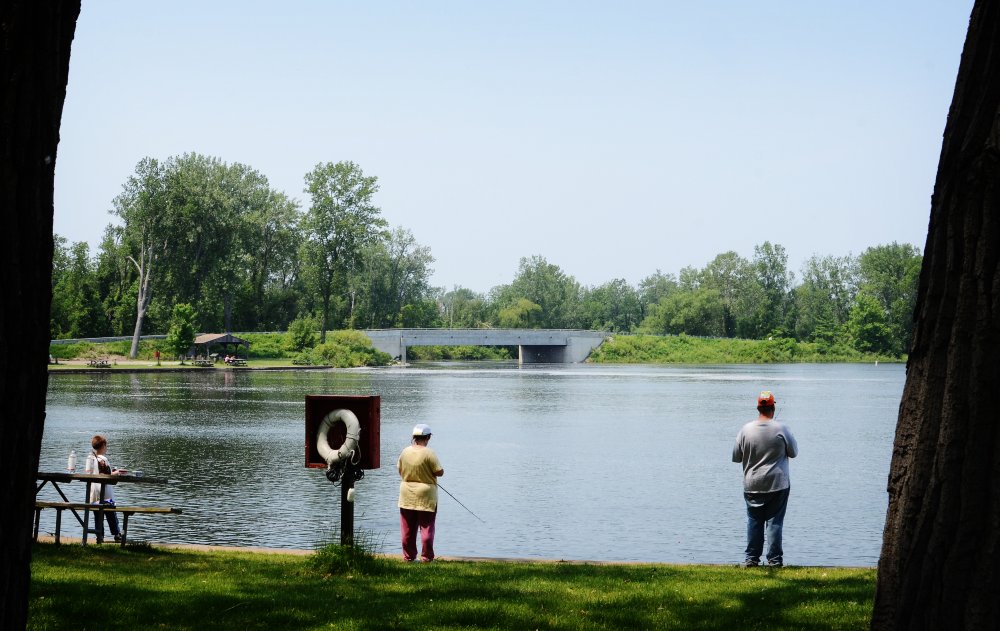The Atlantic - What it Takes to Settle Refugees
What do Burlington, Vermont; Sioux Falls, South Dakota; and Erie, Pennsylvania have in common? Despite their different locations and economic histories and political orientations, all three have been consciously incorporating and welcoming refugees into their towns for decades. They have played this role starting with the waves of refugees to the United States from Vietnam that began in the 1970s, followed by those from Armenia, Russia, Ukraine, Bosnia, Kosovo, Sudan, Nepal, Burma, Bhutan, Iraq, Congo, Somalia, Syria, and more. Their record is worth noting, at a moment when the political discussion about refugees has become so polarized and bitter.
Through American history, ethnic change has always brought some disruption. That is why it has been striking to hear residents of these three towns generally describe the impact of refugees on their communities in similar and positive terms. We’ve repeatedly heard language like “we need each other” describing the economic bargain of the refugees working in the slaughterhouses in Sioux Falls. Or “we are all richer for it” about the diversity of food, arts, languages, customs, and culture brought to Burlington. Or “we embrace the refugees” on how refugees contribute to rebuilding and enriching the shrunken population of rustbelt Erie. The language is unequivocating and strong.
Between arrival—uprooted, usually fleeing hardship or violence, frequently without financial or cultural connections—and a sustainable or thriving existence lie many intermediate steps. All the early ones require help, of the kind organizations in these communities have learned how to provide. The first are as basic as you would imagine: housing and furniture, clothes, food, safety introductions, medical care, and cash. The next steps follow quickly with child care and school, English classes, job searches, training, communications, transportation, banking, cultural introductions, shopping, and on and on.
In Erie, the early steps are managed by the local branch of the U.S. Committee for Refugees and Immigrants, which we wrote about here, and Catholic Charities. Longer term support systems come from a mosaic of organizations: churches, schools, YMCAs, cultural centers, public libraries, community centers, food banks, businesses, transport systems, medical services, and on and on.
I recently visited one of these support groups, the contracted Refugee Social Provider, the Multicultural Community Resource Center (MCRC). It is located east of State Street, which cuts through the middle of Erie and still signals a socioeconomic boundary. Most of Erie’s less affluent population lives on the east side. The MCRC occupies the Old Penn Schoolhouse and its next-door annex at the former 10th St. United Methodist Church. The MCRC began as the Hispanic American Council in 1975, broadening its scope nearly 20 years ago to include refugees outside the Hispanic community. Their mission is to help refugees and immigrants (some of whom are transitory migrant laborers) in just about every way, from social, civic, educational to economic life. The MCRC also raises the profile of the newly-arrived with the more established citizens of Erie. MCRC is funded by as many as two dozen organizations, from government and civic groups to corporations, nonprofits, and private benefactors.
On the day I visited, all kinds of people were bustling in and out of the buildings. The MCRC runs at least 15 different programs including transportation, health care navigation, notary public services, and language translation in Spanish, Bosnian, Russian, Ukrainian, Arabic, Vietnamese, Swahili, Burmese, and more. They touch a lot of cultural bases most of us wouldn’t consider, like truancy prevention and referrals for children at risk of being placed out of their homes.
The Center provides employment services, one of which is Mosaico, a for-profit subsidiary of the non-profit MCRC. It matches employers and employees, and it supports both sides with language and cultural help. We visited one of the employers, Plastek, an internationally successful manufacturer of plastics packaging, which makes many commonly-used containers, like deodorant holders and detergent bottles. Other lines of work are what you’d expect: food services, construction, general labor, etc. In Sioux Falls, Burlington, and now Erie, we have heard a variety of poignant stories from refugees, from those who left behind menial jobs or no jobs at all to those who left behind professional jobs as lawyers, administrators, doctors, and teachers. They all arrive in the U.S. as equals and are all now scrambling to patch together whatever they can get.
Paul Jericho, the Associate Director for Programs at MCRC, toured me around the center, and showed me the room in the old church where refugees come to learn the skills for one of the largest employers of Erie’s refugees: the casino at the local Presque Isle Downs and Casino, which Jim wrote about here. Jericho, a casino dealer himself, is the perfect person to train the refugees. One of his former students has done so well at the casino that he is Jericho’s boss now, Jericho tells me with a chuckle.

Jericho says that refugees fit in well with the growing entrepreneurial spirit of Erie, exemplified by those who share the Radius CoWork space and are featured in the American Futures video here. New arrivals have started over 100 new businesses in Erie, said Jericho. We saw a number of small shops and businesses along Parade Street, like general stores, car repair shops, construction or repair companies.
* * *

The hard work pays off in Erie, which Jericho describes as a good town for refugees. The cost of living launches them on a trajectory from entry jobs to renting apartments, buying cars on time, and purchasing their own houses after as few as two or three years. Many of the refugees I spoke with echoed these points, adding an Erie attribute with emphasis, that “it is safe.” Erie has its share of urban crime, but compared with the neighborhoods of Aleppo, Erie is very safe indeed.
Jericho carved out time he clearly didn’t have to talk with me. All the while, his phone kept ringing and heads popped in and out of his doorway. Sometimes they were calls about legal troubles, like a DUI citation. Other times, he asked someone to return a little later. Jericho is a get-it-done person, like many others we’ve met who work in the chaotic and often messy world of immigrants and refugees. He told me about drives to Pittsburgh to help people with serious eye issues, or to Washington D.C., to check out Gallaudet University. Jericho said there are at least 24 deaf refugees from Nepal who live in Erie now. So far, no one has been able to figure out why there are so many.
(via The Atlantic - What it Takes to Settle Refugees)

